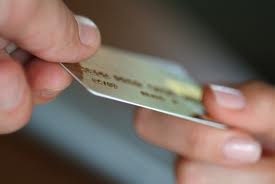 While it is not a common day occurrence, you also are not entirely surprised when you pick up the newspaper, turn on the television, or go online and hear about an employee who was stealing from their employer. Specifically, using the office credit card for their betterment.
While it is not a common day occurrence, you also are not entirely surprised when you pick up the newspaper, turn on the television, or go online and hear about an employee who was stealing from their employer. Specifically, using the office credit card for their betterment.
As noted, while the cases may be in the minority, they can still be devastating to a small business, especially one that is having trouble making a go of it or is just getting its feet wet in the business world.
Some examples include:
* The office manager who is in charge of ordering supplies suddenly gets the urge to go on a small shopping spree of her or his own. While ordering stuff for the company, they conveniently order some items for themselves. Before you know it, they have spent hundreds or even thousands of company dollars, leaving a blotch of red ink in the companyâs finances;
* The employee who travels often for their company gets a business credit card to book flights, hotels, rental cars, meals and more while conducting business on the road. The next thing you know, they have run up multiple purchases that should have come out of their own wallet.
When such instances occur, employees may be caught immediately by someone else in the company who is keeping an eye on expenses, or they could go for some period of time before their game is discovered. Either way, the potential is there for businesses to not only lose money, but also the trust of customers who view such actions as a lack of overall leadership.
Losses to Small Business Add Up
According to a report from the Association of Certified Fraud Examiners (ACFE), it takes on average more than a year for a business owner or co-employee to nab the in-house criminal who is stealing from the company. Meantime, ACFE reports that small businesses (those with less than 100 employees) on average suffer a median setback of $147,000, compared to $100,000 for those businesses with 1,000 or more employees.
Some of the reasons losses at smaller businesses can go unseen for a while include:
* Less oversight because the small business owner is occupied with dozens of other responsibilities to keep his or her business running;
* The person in charge of the office credit card is oftentimes the person who is also doing the office books;
* Fewer employees means less chance of getting caught.
In order to lessen the chances of such crime at your small business, make sure you:
* Check the books yourself or have someone outside the company do it on a regular basis to look for any irregularities in spending;
* Make sure even the smallest of expenditures are accounted for and documented. Whether an employee is buying new ink toner for the office copier or spending a weekend in Las Vegas to meet with new clients, everything needs to be properly recorded;
* Do a thorough check on each employee you hire to make sure they have no criminal past, especially where it involves money (do not just assume that everyone who checks off they have never been convicted of a crime on their application is telling the truth);
* Have a meeting with your employees once or twice a year to inform them of the consequences of such actions, including possible loss of employment and/or jail time (meaning you will press charges).
With all that you potentially have to lose from even one serious incident of credit card abuse in your office, are you willing to take that chance?
Photo credit: insuranceproviders.com
Dave Thomas covers small business topics for various websites, including processing credit cards.